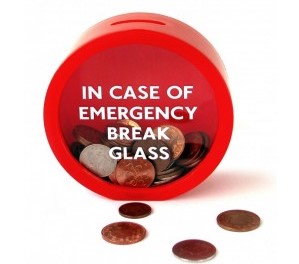 Welcome to part 2 of our back to basics of financial planning series. Now that you know how to become a master of cash flow, the next step you may want to ask is where should I invest the money that is left over in my budget? That is the wrong question! Yes, investing can help you reach financial goals and grow wealth. Yes, talking about investing seems sexy. But, you need to earn the right to invest. Many Millennials think the first dollar they are able to save should be invested, but you need to have a cash reserve first. What were to happen if you lose you job tomorrow? Would you be able to pay rent for 2-3 months? This is why a cash reserve is so essential.
Welcome to part 2 of our back to basics of financial planning series. Now that you know how to become a master of cash flow, the next step you may want to ask is where should I invest the money that is left over in my budget? That is the wrong question! Yes, investing can help you reach financial goals and grow wealth. Yes, talking about investing seems sexy. But, you need to earn the right to invest. Many Millennials think the first dollar they are able to save should be invested, but you need to have a cash reserve first. What were to happen if you lose you job tomorrow? Would you be able to pay rent for 2-3 months? This is why a cash reserve is so essential.
What is a Cash Reserve?
- A cash reserve is generally defined as 3-6 months of living expenses held in cash.
- This needs to be money you can access in case of emergencies or if an opportunity arises. You don’t want to have to tap into long-term assets such as retirement savings.
- A cash reserve provides you with peace of mind.
- It is also a very straight-forward concept if you are still trying to figure out what your long-term goals are. For many Millennials this is an easy step to keep making progress on their own financial plans.
No Excuses
I know many Millennials “just can’t even” when it comes to figuring out their goals or where to start. If you don’t know what you want or maybe you have too many goals, it’s easy to get overwhelmed. Don’t fall into the trap. Getting a handle on your personal finances can be freeing. Master cash flow then establish the cash reserve. It’s that simple. Instead of wondering how you could possibly save for all the goals you might have, focus on the cash reserve.
What’s Next?
If you have mastered cash flow and established a cash reserve, then you can start to approach your other goals. You know how much money you have left over each month and you have an emergency fund. Now you can start to focus on your bigger goals. But as you move on, don’t forget the basics. I’ve seen many successful young professionals invest surplus cash or bonus before building a cash reserve. I know it’s tempting, but if something were to happen and you didn’t have a cash reserve, thing can spiral downward quickly. This really is an easy one! Don’t skip it!
Related Articles
[Barron’s] How to Save Money When You Don’t Have Much to Save
